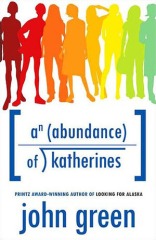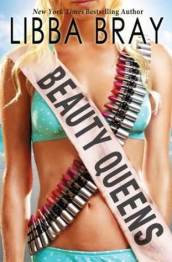After millions of snow days, my student teacher, Mike, and I are finally wrapping up our Siddhartha self-reflection unit and jumping into a new writing unit I’m really excited about–comedy! We’ll study satire, sketch comedy, stand-up, commentary, and monologues for mentor texts, then work with our students to craft strong comedy writings that exemplify the skills of pacing, payoff, “punch-up,” and one other skill that I think is the most important:
Voice.
Writing voice, for me, is where humor, sarcasm, and personality come alive in a piece of writing. “Voice,” Tom Romano writes, “is the writer’s presence on the page.” Voice is the most elusive quality of writing to teach, I think, because it’s not really quantifiable and cannot be duplicated or imitated. Each writer must craft his own authentic voice.

Brainstorming the bare bones of a comedy unit
While discussing the very bare bones of our comedy unit, we brainstormed mentor texts, seed prompts, and writing skills. After we hammered those out, Mike wondered about which books to booktalk for the unit. “Nonfiction comedy is easy,” he said. “Bossypants, Yes Please, Confederacy of Dunces. But I’m not sure what to booktalk for fiction.”
“But YA fiction is so hilarious!” I exclaimed. I started rattling off narrators who cracked me up. Their writing voices were the perfect mentor texts for our students, who’d be focusing on crafting a humorous writing voice over the course of the unit.
“Looks like I know what I’ll be brushing up on for my weekend reading,” Mike remarked. So here, in part, is a list of what I recommended to him–YA fiction that’s funny and full of voice.
The Absolutely True Diary of a Part-Time Indian by Sherman Alexie — This novel, paired with illustrations by the narrator, is loosely based on Alexie’s own upbringing somewhere between two identities–his poor Indian self who lives on the rez, and his striving-to-succeed “white” self who attends a better school up the road. It’s infused with Alexie’s signature wry humor even against a pretty dark plot backdrop.
 An Abundance of Katherines by John Green — This is, to me, the funniest of Green’s novels, although all of his narrators are pretty hilarious. Colin Singleton has dated 19 girls named Katherine, and has been dumped by all of them. If that’s not funny enough as it is, Colin is trying to write a mathematical formula for relationships and likes to find anagrams in random places.
An Abundance of Katherines by John Green — This is, to me, the funniest of Green’s novels, although all of his narrators are pretty hilarious. Colin Singleton has dated 19 girls named Katherine, and has been dumped by all of them. If that’s not funny enough as it is, Colin is trying to write a mathematical formula for relationships and likes to find anagrams in random places.
The Disreputable History of Frankie Landau-Banks by e. lockhart — For me, Frankie is the female version of James Dean in Rebel Without a Cause. Determined to subvert the male-dominated traditions at her private school, Frankie gets into all kinds of mischief, and I loved her headstrong voice.
American Born Chinese by Gene Luen Yang — This excellent graphic novel pairs multiple storylines, all of which are made hilarious primarily through dialogue and stylistic choices in Yang’s illustrations. From antagonists so dumb they’re funny to Yang’s monkey alter ego, this is a humorous look at growing up different in America.
Anna and the French Kiss by Stephanie Perkins — I identified so much with the quirky narrator of this novel. Forced to change schools right before her senior year, Anna is self-deprecating, sarcastic, and delightfully bewildered when she moves to the International School of Paris. There’s also a great cast of hilarious supporting characters here.
Dumplin’ by Julie Murphy — I just loved Willowdean, the narrator of this terrific, important novel. Most of her snide comments are made through internal monologues, but her interactions with her mom through dialogue are also quite funny, too. Like Part-Time Indian, there are some heavier themes, but all in all I smiled throughout most of this book.
 Beauty Queens by Libba Bray — An all-girls’ Lord of the Flies, this book was fantastic for a variety of reasons. The colorful cast of alternating narrators means there’s someone every reader can identify with, the interactions between those characters are often ridiculous and hysterical, and interwoven with it all is a series of broadcasts from a corrupt third party who are so evil it’s funny.
Beauty Queens by Libba Bray — An all-girls’ Lord of the Flies, this book was fantastic for a variety of reasons. The colorful cast of alternating narrators means there’s someone every reader can identify with, the interactions between those characters are often ridiculous and hysterical, and interwoven with it all is a series of broadcasts from a corrupt third party who are so evil it’s funny.
Noggin by John Corey Whaley — I finally read this book after it was stolen from my library countless times, and it’s hilarious from page one. The story of a boy whose head is transplanted onto another teen’s body after he dies of cancer, Travis’ tale is at turns heartbreaking and hilarious as he tries to navigate the world five years after he last left it. A fantastic series of supporting characters elevated the humor in this book for me, too.
Me and Earl and the Dying Girl by Jesse Andrews — For me, this was a more realistic version of The Fault in Our Stars. I found Greg’s writing voice engaging and entertaining right away, and it made me read this book in one sitting. His frequent addresses to the reader combined with his hilarious interactions with his friend Earl made Greg a favorite narrator of mine, and makes me eager for Jesse Andrews to write some more books!
Winger by Andrew Smith — All of Andrew Smith’s writings are hilarious at times, but for me Winger was the funniest. Ryan Dean West is a scrappy fifteen-year-old making his way through freshman year at a private school, and his escapades with his rugby teammates, his crush, and his teachers made for a lot of laughs–up until I completely broke down in sobs for the last 30 pages or so of the book. Still, Ryan Dean’s voice was so great that I couldn’t wait to devour this book’s sequel, Stand-Off.
What are some of the best-voiced YA books you’ve read that have cracked you up? Please share in the comments!
 Objectives: Using the language of the Depth of Knowledge Levels: students will make observations about a writer’s craft, identifying patterns in sentence structure, punctuation, and word choice to help define voice. Or, in the Common Core, students will interpret words and phrases phrases as they are used in a text and analyze how [they] shape meaning or tone.
Objectives: Using the language of the Depth of Knowledge Levels: students will make observations about a writer’s craft, identifying patterns in sentence structure, punctuation, and word choice to help define voice. Or, in the Common Core, students will interpret words and phrases phrases as they are used in a text and analyze how [they] shape meaning or tone.


 An Abundance of Katherines by John Green — This is, to me, the funniest of Green’s novels, although all of his narrators are pretty hilarious. Colin Singleton has dated 19 girls named Katherine, and has been dumped by all of them. If that’s not funny enough as it is, Colin is trying to write a mathematical formula for relationships and likes to find anagrams in random places.
An Abundance of Katherines by John Green — This is, to me, the funniest of Green’s novels, although all of his narrators are pretty hilarious. Colin Singleton has dated 19 girls named Katherine, and has been dumped by all of them. If that’s not funny enough as it is, Colin is trying to write a mathematical formula for relationships and likes to find anagrams in random places. Beauty Queens by Libba Bray — An all-girls’ Lord of the Flies, this book was fantastic for a variety of reasons. The colorful cast of alternating narrators means there’s someone every reader can identify with, the interactions between those characters are often ridiculous and hysterical, and interwoven with it all is a series of broadcasts from a corrupt third party who are so evil it’s funny.
Beauty Queens by Libba Bray — An all-girls’ Lord of the Flies, this book was fantastic for a variety of reasons. The colorful cast of alternating narrators means there’s someone every reader can identify with, the interactions between those characters are often ridiculous and hysterical, and interwoven with it all is a series of broadcasts from a corrupt third party who are so evil it’s funny.